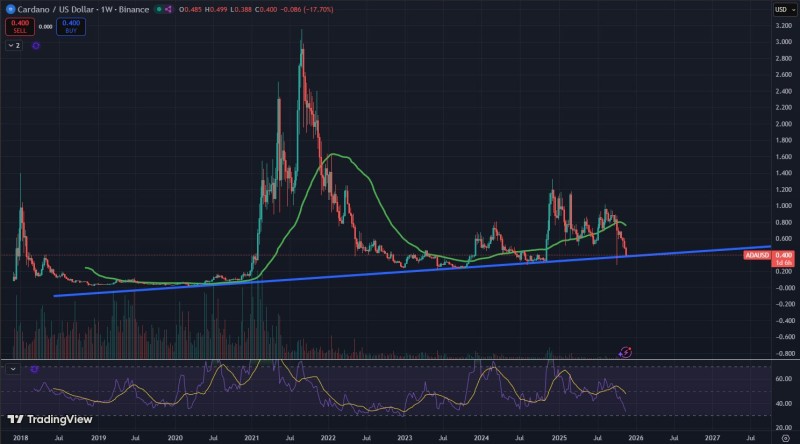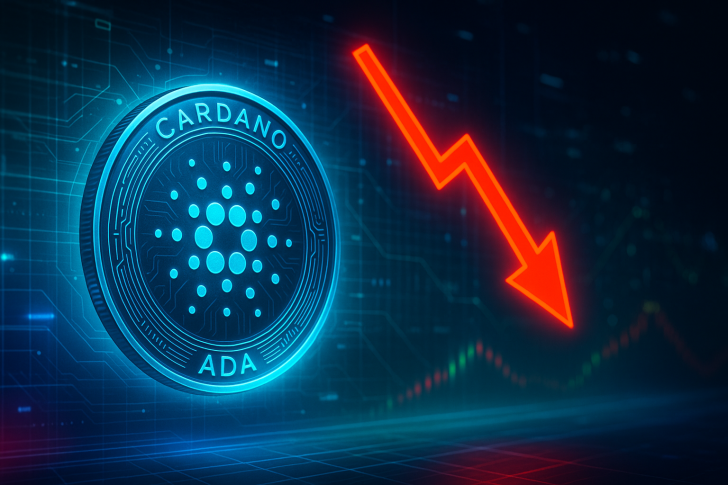⬤ Cardano has returned to one of its most important long-term technical levels, with ADA testing a multi-year rising support trendline on the weekly chart. The big question now is whether ADA can bounce off this structural base after a steep market pullback. Right now, ADA is trading near $0.40, down roughly 17.7% in the latest weekly candle, putting the asset right on top of the trendline that's defined its broader uptrend since 2019.

⬤ The chart shows how ADA has repeatedly leaned on this ascending support throughout past market cycles. This trendline caught lows during the 2020 consolidation phase, held through volatility in 2022, and supported price action again during weak periods in 2023 and early 2024. ADA has now hit the same level with accelerating downside momentum after failing to maintain gains from its most recent rally. A 21-week moving average sitting above the current price reflects how deep the latest selloff has been. Meanwhile, the weekly RSI has moved toward oversold territory, signaling weakening momentum as ADA retests its long-term base.
⬤ The long-term context makes it clear why this level is considered critical. ADA's reaction here has often marked major turning points, both during extended drawdowns and ahead of broader recovery phases. There's limited horizontal support directly beneath the trendline, which really emphasizes how important this retest is. Market participants watching Cardano want to see whether long-term buyers step in at this historically significant zone or whether bearish pressure keeps pushing ADA lower.
⬤ This matters because multi-year support structures often influence sentiment and capital flow across the crypto market. Whether ADA holds or breaks this trendline could shape expectations for near-term volatility and broader risk appetite in the altcoin space. With price action compressed around a level that's defined the project's long-term path, the coming weeks should provide important signals about Cardano's position in the shifting crypto landscape.
 Peter Smith
Peter Smith

 Peter Smith
Peter Smith


